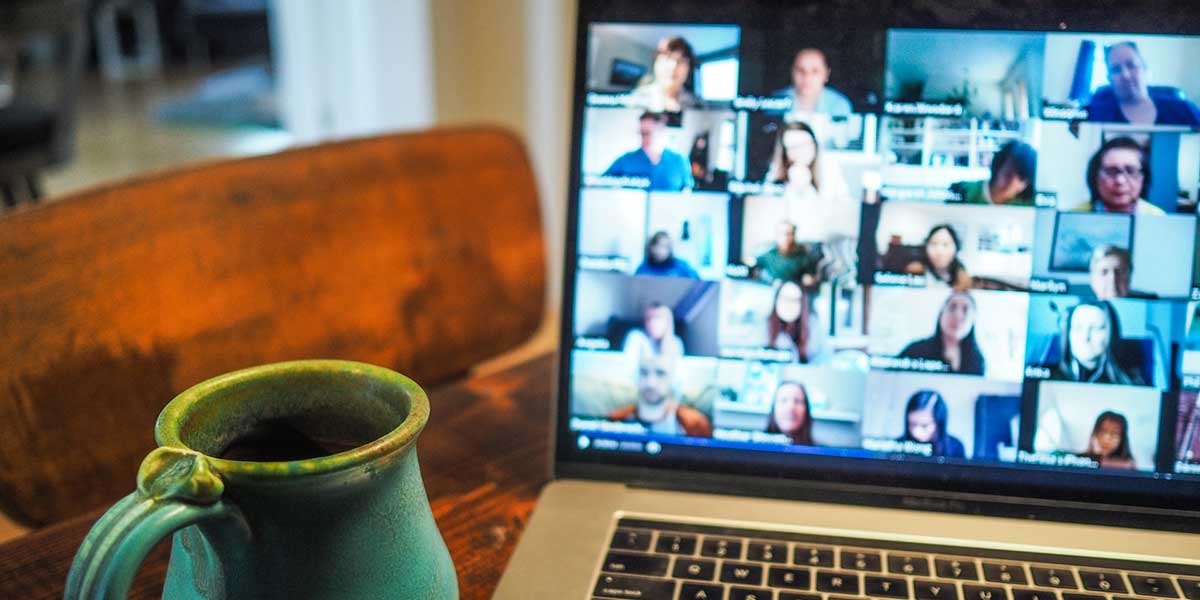Zoom is both a blessing and a curse. When the pandemic hit, Zoom and other video conferencing providers, saved the day.
Thanks to video conferencing companies were able to operate remotely, students were able to go to school, friends and family were able to stay in touch. In the mutual fund industry, Zoom allowed asset managers to continue with business as usual-virtually. Meetings with clients and prospects didn’t have to be cancelled – they were just done from literal home offices.
Awesome right? Not so fast.
Many have developed what is called “zoom fatigue.” They’re feeling stressed, anxious, depressed, and exhausted.
Researchers from Sweden and Stanford conducted a study with over 10k participants to study the phenomenon. Our friends at Amen Clinics reviewed the findings and provided valuable strategies to help combat the issue.
5 reasons you’re feeling Zoom fatigue:
- Mirror anxiety. Seeing oneself either full screen or in the gallery view thumbnail can be quite stressful. Many find themselves focused on their own image and it’s causing increased anxiety and depression.
 Photo credit: Ospan Ali on Unsplash
Photo credit: Ospan Ali on Unsplash
- Feeling physically trapped. If you’re on a Zoom call you’re unable to move around much.To keep your head and shoulders in view you need to stay in one position. Not only can this feel claustrophobic, studies have shown that restricting physical movement negatively impacts creative thinking and cognitive performance.
- Hyper gaze. In a group virtual meeting, many sets of eyes can feel like you’re under a microscope. One-on-one can feel intense and intimidating. During in-person meetings between two people it’s common to break eye contact and look around. On a Zoom one-to-one meeting eye contact stays more constant and with the close proximity of the camera it can feel like the other person is sitting right in front of you. Couple the proximity with the constant eye contact and it can be seriously stressful!
- Cognitive load of interpreting nonverbal cues. When meetings take place in person much can be gleaned from body language and nonverbal cues. Zoom takes away that extra layer of interpretation and connection and our brains have to fight harder to extrapolate cues.
- Cognitive load of producing nonverbal cues. Alternatively, many feel the need to make large exaggerated movements for the camera – or, movements they wouldn’t make in an in-person meeting. Have you found yourself waving “goodbye” as meetings end? Not typical behavior for work meetings.

Photo credit: Beci Harmony on Unsplash
You’ve now reviewed the top 5 reasons you may be feeling Zoom fatigue but what can you do about it? Amen Clinics shared these tips.
6 strategies to overcome Zoom fatigue:
- Hide self-view. If constantly staring at yourself during meetings is making you anxious turn off the self view.
- Go wireless. Using a wireless keyboard allows you sit further from your screen which may help you from feeling like you’re staring right into another’s face or even your own.
- Take mini breaks. Break eye contact from time to time.
- Change your position. Consider using a standing desk from time to time to change things up – or, if you use a standing desk, try sitting down sometimes. This can help prevent those feelings of virtual claustrophopbia.
- Change your view. If you’re bothered by all the eyes seemingly focused on you in a group meeting, switch to speaker view or alternate views.
- Create a routine. Get in the habit of stretching or deep breathing before and after calls. It can help you decompress.
Like it or not, video conferencing is here to stay – to what degree remains to be seen. Many companies, successfully switching to remote work, have chosen not to return to offices. Only time will tell how much or how little meetings via video will stay.
Looking for tips to improve your Zoom performance? You might find these resources helpful:
Tips of Great Meetings & Interviews at home

